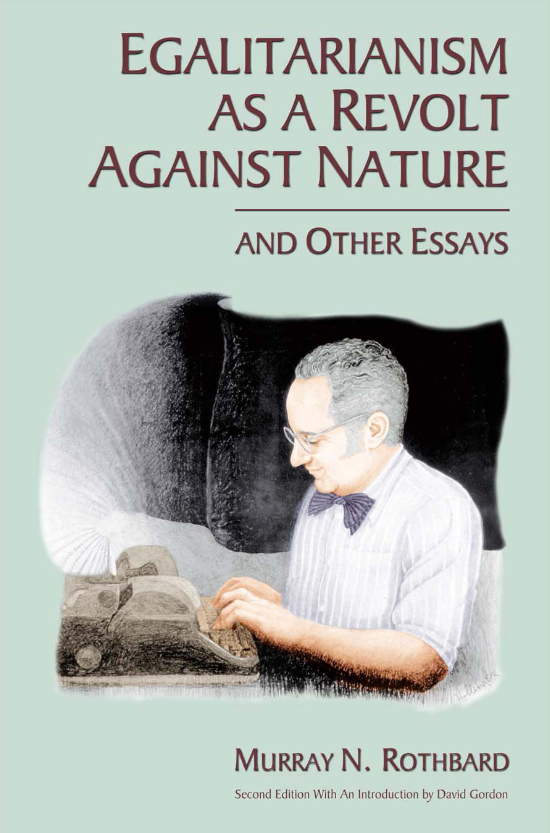Newly released
This book is new and will be uploaded as soon as it becomes available to us and if we secure the necessary publishing rights.

Egalitarianism as a Revolt Against Nature and Other Essays Book PDF
(0)
Author:
Murray RothbardNumber Of Reads:
79
Language:
English
Category:
fieldsSection:
Pages:
354
Quality:
excellent
Views:
740
Quate
Review
Save
Share
Book Description
This volume represents some of Rothbard's most advanced and radical theorizing on topics impacting on human liberty. Appearing first in 1974, this volume, more than any of other, came to build a generation of libertarian scholars that looked beyond the trapping of conventional left-right thinking, and hence laid the groundwork for the current intellectual revolt against centralized social and economic management.
The book's title comes from the lead essay, which argues that egalitarian theory always results in politics of statist control because it is founded on revolt against the ontological structure of reality itself. It is an attempt to replace what exists with a Romantic image of an idealized primitive state of nature, an ideal which cannot and should not be achieved. The implications of this point are worked out on topics such as market economics, child rights, environmentalism, feminism, foreign policy, redistribution--and a host of other issues that are driving public debate today.
As Roy Childs, Jr., writes in the introduction: "Until Rothbard's work is carefully studied by every advocate of liberty, the value of his contributions to the libertarian system cannot be fully appreciated and, moreover, the unity and true historical context of libertarianism will not even be fully grasped."
Murray Rothbard
Murray Newton Rothbard was an influential American historian, natural law theorist and economist of the Austrian School who helped define modern libertarianism. Rothbard took the Austrian School's emphasis on spontaneous order and condemnation of central planning to an individualist anarchist conclusion, which he termed "anarcho-capitalism".
Book Currently Unavailable
This book is currently unavailable for publication. We obtained it under a Creative Commons license, but the author or publisher has not granted permission to publish it.
Rate Now
5 Stars
4 Stars
3 Stars
2 Stars
1 Stars
Egalitarianism as a Revolt Against Nature and Other Essays Quotes
Top Rated
Latest
Quate
Be the first to leave a quote and earn 10 points
instead of 3
Comments
Be the first to leave a comment and earn 5 points
instead of 3